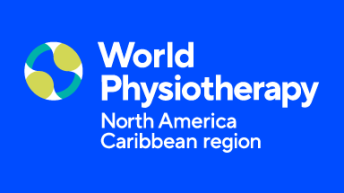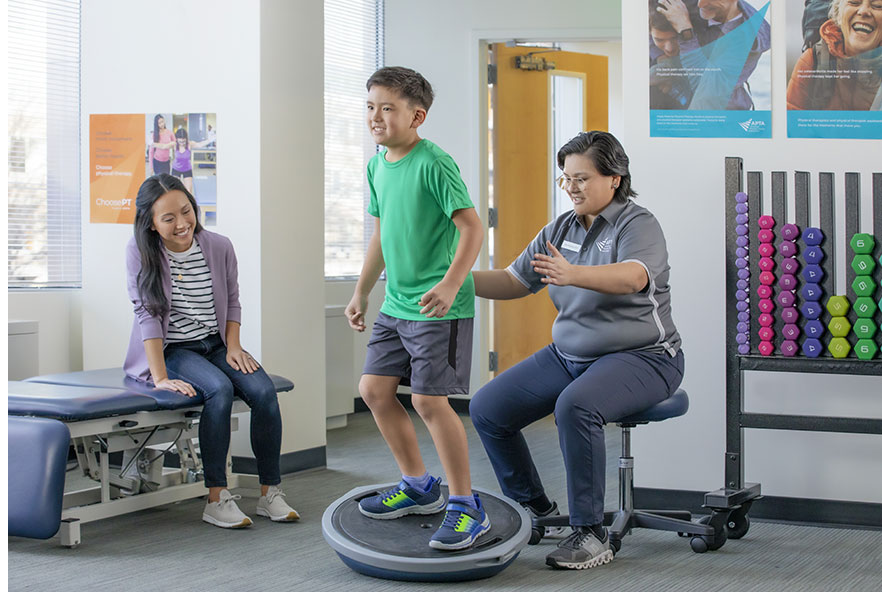
North America Caribbean region
North America Caribbean region has physiotherapy associations from 13 countries/territories
The American Physical Therapy Association (APTA) is one of our founding members and is part of our North America Caribbean region. The association’s history dates back to 1921.
Washington was the location for our 13th general meeting in 1995 and our 3rd general meeting took place in New York in 1956.
APTA, or its national special interest groups, are members of the following specialty groups recognised by World Physiotherapy:
1921
1951
2024
65,704

 (1) 703 706 3228
(1) 703 706 3228
Primary contact
Chief executive officer
President
Key contact
240,820
7.08
66%
In this country/territory
In this region
Globally
65,704
56%
In this MO
In MOs in this region
In MOs globally
Professional doctorate
3
306
https://www.apta.org/your-career/careers-in-physical-therapy
* = Continuing Professional Development
The American Physical Therapy Association develops standards, positions and policies but has no legal authority. Licensure is handled at a state level: http://www.apta.org/Licensure/
One or more independent regulation/licensing/registration authorities
The World Physiotherapy member organisation specific standard
All programmes
Act as first contact/autonomous practitioners
Assess patients/clients
Make a diagnosis
Offer preventative advice/services
Refer to other specialists/services
Treat (interventions, advice and evaluation of outcome)
Provide telehealth services
*Direct access means a person can refer themselves to a physiotherapist without referral from another health professional
What are the circumstances in which direct access is limited?
Setting (eg. outpatient, private practice, school setting, prevention and wellness, etc)
Population/health condition (eg. musculoskeletal, non-complex, etc)
Time (eg. medical referral required if treatment is needed beyond 30 or 60 days)
Training (eg. certification, academic training, or CPD to demonstrate skill necessary to treat patients without referral from a medial doctor)
Other
Amputee rehabilitation
Aquatics
Cardiorespiratory physiotherapy
Educators in physiotherapy
Electrophysical agents
Health promotion
Information management and technology
Intellectual disability
Mental health
Orthopaedics/manual therapy
Older people
Oncology/palliative care and HIV
Pain management
Paediatrics
Sports physiotherapy
Womens health
Animal practice
Management/administration
Neurology
Occupational health and ergonomics
Private practitioners
Policy
A global profile of the profession is also available.
32 (<100)
1.79 (1-5)
84% (>80%)
74% (60-80%)
Bachelors degree
Yes
A partnership between a regulation/licensing/registration body and your organisation (Partnership)
Yes, The standards of the regulatory/licensing/registration authority
No
No
No
Yes
Yes
No
65 (<100)
2.52 (1-5)
86% (>80%)
83% (>80%)
Bachelors degree
Yes
Ministry of Health or another government department (Government)
Yes, The standards of the regulatory/licensing/registration authority
No
Yes
Private only
Yes
Yes
No
32 (<100)
9.61 (5-10)
88% (>80%)
85% (>80%)
Bachelors degree
Yes
A partnership between a regulation/licensing/registration body and your organisation (Partnership)
Yes, The World Physiotherapy member organisation specific standard
No
Yes
Yes
Yes
Yes
No
11,601 (>10000)
7.27 (5-10)
69% (60-80%)
70% (60-80%)
Masters degree
1.87 (1-5)
Yes
One or more independent regulation/licensing/registration authorities (Independent)
Yes, The standards of the regulatory/licensing/registration authority
Yes, All programmes (Yes)
Yes
Yes
Yes
Yes
No
72 (<100)
1.04 (1-5)
83% (>80%)
76% (60-80%)
Bachelors degree
6.14 (5-10)
Yes
Ministry of Health or another government department (Government)
Yes, The standards of the regulatory/licensing/registration authority
Yes, All programmes (Yes)
Yes
Yes
Yes
Yes
No
6 (<100)
0.03 (<1)
100% (>80%)
67% (60-80%)
Bachelors degree
1.28 (1-5)
No
Not defined
No
Yes, Some programmes (Some)
Yes
Private only
Yes
Yes
No
97 (<100)
2.02 (1-5)
81% (>80%)
67% (60-80%)
Bachelors degree
1.77 (1-5)
Yes
Ministry of Health or another government department (Government)
Yes, The World Physiotherapy standard
No
No
No
Yes
Yes
No
124 (100-1000)
4.48 (1-5)
81% (>80%)
90% (>80%)
Bachelors degree
14.55 (10-15)
Yes
Ministry of Health or another government department (Government)
Yes, The standards of the regulatory/licensing/registration authority
No
No
No
Yes
Yes
No
150 (100-1000)
1.94 (1-5)
19% (<20%)
80% (60-80%)
Bachelors degree
3.12 (1-5)
Yes
Ministry of Health or another government department (Government)
Yes, The standards of the regulatory/licensing/registration authority
Yes, All programmes (Yes)
No
No
Yes
Yes
No
10 (<100)
0.72 (<1)
90% (>80%)
77% (60-80%)
Bachelors degree
Yes
One or more independent regulation/licensing/registration authorities (Independent)
No
No
No
No
Yes
Yes
No
40 (<100)
1.35 (1-5)
75% (60-80%)
83% (>80%)
Masters degree
8.02 (5-10)
Yes
Ministry of Health or another government department (Government)
Yes, The World Physiotherapy standard
Yes, All programmes (Yes)
No
No
No
No
No
54 (<100)
0.68 (<1)
70% (60-80%)
68% (60-80%)
Bachelors degree
Yes
One or more independent regulation/licensing/registration authorities (Independent)
Yes, More than one
No
Yes
Private only
Yes
Yes
No
65,704 (>10000)
7.19 (5-10)
56% (40-60%)
67% (60-80%)
Professional doctorate
4.57 (1-5)
Yes
One or more independent regulation/licensing/registration authorities (Independent)
Yes, The World Physiotherapy member organisation specific standard
Yes, All programmes (Yes)
Yes
Yes
Yes
Yes
No

North America Caribbean region has physiotherapy associations from 13 countries/territories




